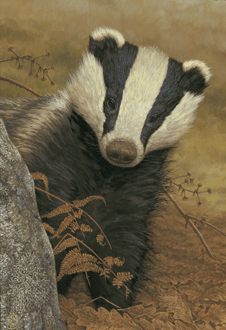
Call for papers -
2009 Association of American Geographers Annual Conference. 22-27 March 2009, Las Vegas, USA.
Is Google Good for Geography? Web2.0 and the Political Economy of User Generated Geographical Knowledge
Session organisers:Matthew ZookDepartment of Geography, University of Kentucky
Martin DodgeGeography, School of Environment and Development, University of Manchester
Context:The dramatic rise of Web2.0 applications and practices have facilitated the creativity and voluntary collaboration of masses of Internet users, e.g., wikis, folksonomies, mash-ups, tagging, social networking, etc. Of particular interest to Geographers are the evolving forms, functions and scope of spatial referenced information such as local news, reviews, commentaries, recommendations, photographs and maps. Perhaps the highest profile example is GoogleMaps which allows for user generated placemarks and geotagged images, ground-truthing, spatial reviews, etc. and is changing the amount and granularity of information readily available about vernacular places. But widespread user generated data and notations need not translate into valuable knowledge nor is this process neutrally distributed across all places or among all peoples. In short, this session explores where, by whom, about what and how the introduction of Web2.0 applications is producing knowledge about places.
Suggested themes:We invite theoretically informed analyses questioning the social effects, cultural meanings and political economy of Web2.0 innovations for geography, with particular consideration of the following themes:
# Assessing the real potential of Web2.0 geographical knowledge to encompass alternative voices and richer descriptions of place.
# The perils of Web2.0 geographical knowledge to further the commodification of local places and the marketisation of personal feelings and ideas.
# The politics of the Web2.0 socio-technical infrastructures and corporate structures underpinning the collection and distribution of user generated geographical knowledge.
# The economies of who owns, indexes, aggregates and repackages user generated knowledge about places.
# Consideration of the risks that flow from people's unwitting trust in the truth of Web2.0 geographical knowledge.
# The embodied practices of user generated geographical knowledge and the ways in which these may be associated with social power, e.g. gendered, classed, aged, etc. to create the cultural meanings attached to Web2.0.
# The efficacy of Web2.0 geographical knowledge. How do we evaluate the accuracy and fidelity of new geographical databases, taxonomies and wiki maps?
# The artistic, playful, or subversive potential of the Web2.0 geographical knowledge.
# The ethics of web2.0, particularly relating to individual privacy and community rights. The geo-surveillance potential of Web2.0 for states and corporations.
----
Proposed papers in the form of a title and short abstract (250 words maximum) should be submitted to Martin Dodge (m.dodge@manchester.ac.uk) by 8th October 2008. Further details on the paper requirements and cost of registration for the AAG meeting are at:
http://www.aag.org/annualmeetings/2009/index.htmhttp://personalpages.manchester.ac.uk/staff/m.dodge/Is_Google_Good_for_Geography_AAG_CFP.pdf


 Cyber Badger Research Blog
Cyber Badger Research Blog


 The edited book, Rethinking Maps, that I have been working on for a good while is nearing completion. Here is the introductory chapter, 'Thinking About Maps', by Rob Kitchin and Chris Perkins.
The edited book, Rethinking Maps, that I have been working on for a good while is nearing completion. Here is the introductory chapter, 'Thinking About Maps', by Rob Kitchin and Chris Perkins.

 Last week I also did a days trips out on the sailing barge Greta from Whitstable. We went out around the new offshore wind farm and then onto Red Sands WW2 forts. Shame the weather was lousy for much of the day - low grey clouds.....
Last week I also did a days trips out on the sailing barge Greta from Whitstable. We went out around the new offshore wind farm and then onto Red Sands WW2 forts. Shame the weather was lousy for much of the day - low grey clouds.....
 'Maps as Method' Sessions and 'The Future of the Map' Plenary
'Maps as Method' Sessions and 'The Future of the Map' Plenary In addition to the paper sessions we also organised a plenary discussion on 'the future of the map' with Ed Parsons (geospatial technologist for Google), Mary Spence (President of British Cartographic Association) and Denis Wood (indepedent cartography theorist and writer). This lively discussion as well as a good deal of media interest (sparked in part by a clever press release written by RGS!).
In addition to the paper sessions we also organised a plenary discussion on 'the future of the map' with Ed Parsons (geospatial technologist for Google), Mary Spence (President of British Cartographic Association) and Denis Wood (indepedent cartography theorist and writer). This lively discussion as well as a good deal of media interest (sparked in part by a clever press release written by RGS!).